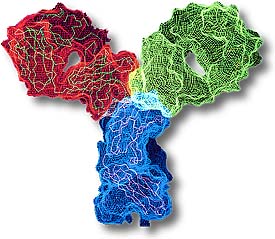August 21, 2006
Is Your Immune System Getting Weaker?
By Michael D. Shaw
In these columns, I try my best to provide an objective viewpoint on various health and environmental issues. Sometimes, though, establishing a definitive position on a particular topic is elusive, to say the least. Such a matter is the question of whether or not our immune systems are getting weaker.
Past columns have looked at infections caused or exacerbated by by hot tubs, petting zoos, nail salons, and the airliner cabin environment.
At the same time, vanguard clinical researchers such as Michael J. Goldberg, MD speak of an explosion, in the last 25 years, of autoimmune and immune mediated disorders in adults and children, including diabetes, allergies, migraines, chronic sinus infections, irritable bowel syndrome, Chrohn’s Disease, ulcerative colitis, and lymphoma. Goldberg also points to demonstrated autoimmune links to the burgeoning cases of Alzheimer’s, Parkinson’s, and Multiple Sclerosis.
It would certainly appear—empirically—that something is amiss. Or is it?
If we accept this hypothesis, then, as scientists, we must try to explain it. Many have pet theories, but there is little hard science to back them up. For example, a search of the technical literature will return dozens of articles relating emotional stress to a weakening of the immune system, but since there is no quantitative way to measure “emotional stress,” and the establishment of controls in such a setting is virtually impossible, these results are subjective at best.
One notorious study, from Ohio State University, found that “abrasive” arguments between husbands and wives—married an average of 42 years—were linked to a weakening of certain aspects of their immune responses. How objective could that research have been?
Another popular culprit is the overuse of antibiotics, which provides a double whammy. Resistant strains of bacteria, such as Methicillin Resistant Staphylococcus aureus emerge, and the patient’s immune system, artificially propped up with the drugs, gets weaker. This theory is fine as far as it goes, but it begs the question as to what indication for antibiotics would constitute proper use.
Negative findings on antibiotics have increased the popularity of probiotics, which undoubtedly show promise. Interestingly, the use of probiotics mirrors the notion that “a germ a day” keeps the immune system sharp, and we should not be so germophobic. Only, try telling yourself that while you’re sitting next to a constantly coughing and sneezing person on a 15-hour flight.
And, let’s not forget the supposed deterioration of our environment. This would include air, water, and noise pollution. One can posit immune receptors latching on to all sorts of chemical intrusions, and thus being overtaxed to fend off the biological pathogens. This could certainly be a factor, although most would agree that our environment has been cleaned up, compared to 50 years ago, and this would appear to fly in the face of the aforementioned autoimmune and immune mediated disease explosion.
Excessive noise probably contributes to stress, as does overwork, and the relatively new phenomenon of always being connected. Some term devices such as the Blackberry high-tech leashes.
Finally, it is likely that many diseases are now being better diagnosed and reported, although it would not be prudent to overstate this factor. Chronological superiority is generally 80 percent pride and 20 percent fact.
So, what is our take-away from all of this? Even if “our” immune systems are getting weaker, does that mean that yours has to follow suit?
A safe conclusion for us to draw is that our lives are more complicated than they were even 30 years ago, and our expectations as to good health are far higher. Our best course is to consider as much “expert” advice as we can reasonably assimilate, exercise informed common sense, and take charge of our own good health.

